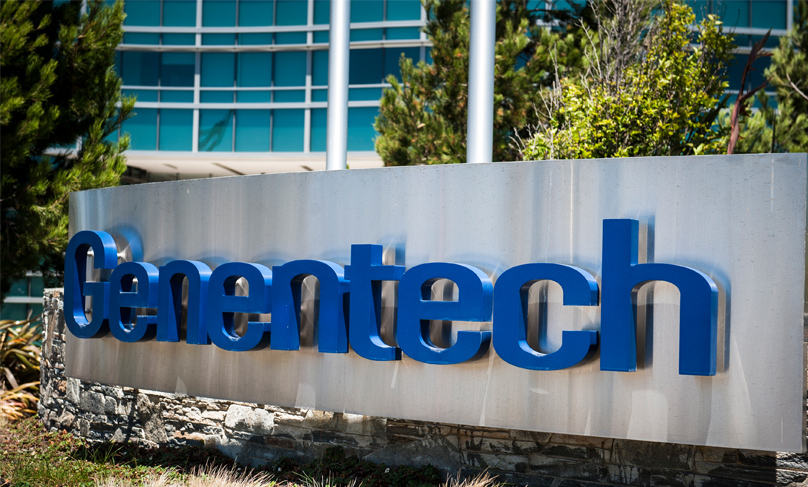Roche rings Bicycle bell again, grabbing another cancer target

Roche's Genentech unit has gone all in on its collaboration with UK biotech Bicycle Therapeutics, taking up an option on a second additional target in the area of cancer immunotherapy.
Bicycle's bicyclic peptide drug discovery platform is designed to produce drug candidates that have targeting properties like antibodies but are much smaller molecules, making manufacturing and dosing easier.
The time the peptides stay in the body can also be fine-tuned, allowing for precise control of drug exposure, according to the biotech.
Genentech has been looking at the platform since 2020 under the terms of a deal worth up to $1.7 billion that give it opt-in rights to two immuno-oncology targets, plus scope to extend the alliance with two more in return for a $10 million fee apiece.
It activated the first expansion option last October and has now gone in on the second, triggering another payment to the UK company.
Bicycle said that none of the compounds in its in-house oncology pipeline, including its immuno-oncology candidates, are included in the Genentech collaboration.
The alliance sees Bicycle and Genentech collaborate on the discovery and preclinical testing of bicyclic peptides, with the Roche company taking over after a lead drug candidate is selected for further development.
The agreement includes another $12 million to Bicycle, per candidate, if Genentech decides to take a peptide further in development.
Roche isn’t the only big pharma partner Bicycle has attracted for its bicyclic peptide technology. In 2016 it started a $1 billion alliance with AstraZeneca to find drug candidates that could be used to treat respiratory diseases, and extended that in 2018 to include cardiovascular and metabolic disorders.
It also has alliances with Oxurion in the area of ophthalmology, as well as with Cancer Research UK and the Dementia Discovery Fund.
The company’s lead in-house project is BT1718 – a bicycle toxin conjugate (BTC) drug that combines targeting of MT1-MMP on cancer cells with a cell-killing payload – which is being tested in a phase 1/2a trial in solid tumours sponsored by CRUK.
Following after is BT5528, described as a second-generation BTC targeting EphA2 which is also in a phase 1/2 study in advanced solid tumours.
Bicycle's immuno-oncology pipeline is headed by BT7480, a tumour-targeted immune cell agonist (TICA) that binds to Nectin-4 on cancer cells and stimulates CD137 on immune cells, driving an immune response.












